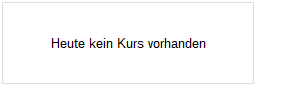http://www.neurosearch.com" target="_new">
Published: 11:18 07.08.2003 GMT+2 /HUGIN /Source: NeuroSearch A/S /CSE: NEUS /ISIN: DK0010224666
NeuroSearch - strategy announcement and raises its full-year forecast for 2003
To the Copenhagen Stock Exchange
| | |||||||||||||||||||||||||||||||||||||||||||||||||||||||||||||||||||||||||||||||||||||||||||||||||||||||||||||||
| NeuroSearch (NEUS:CO) is one of the world's leading biopharmaceutical companies in the research and development of new drugs against diseases of the central nervous system (CNS). NeuroSearch has recently reached a number of significant milestones in its current research and development programs and expects to enter into one or more new strategic alliances before the end of 2003. Against the backdrop of these positive developments, the management of NeuroSearch is now basing its planning on the assumption that the company itself will be able to finance its operations until the market launch of its first products, which is expected in 2007. Management believes that the company's current capital resources, financing from already existing license agreements and additional revenues - primarily from a comprehensive strategic alliance with an international pharmaceutical company and selling shares in Bavarian Nordic at the current price level - will be sufficient to provide financing until NeuroSearch achieves sustainable earnings through significant license revenues from its marketed products. In light of this, management has decided to raise its forecast for 2003 by DKK 80 million and release this announcement, which is intended to give an overview of the planned developments. Milestones in NeuroSearch:
On the basis of this progress and expectations with respect to new license agreements in the current financial year, NeuroSearch is raising its forecast for 2003 by DKK 80 million, to a combined loss of approximately DKK 50 million versus the previous forecast a loss of DKK 120-140 million. The market for CNS drugs and NeuroSearch's position Drugs for the treatment of CNS diseases amounted to almost DKK 300 billion (USD 46 billion) in 2001; only drugs for cardiovascular diseases sold more. The annual growth rate for CNS drugs in 2001 was 13% compared to an all-drug average of approximately 8%. In spite of the very high sales figures, a majority of CNS diseases are characterized by lack of available treatment, or they can only be treated to a limited extent. It is generally agreed that there is a great need for drugs for the treatment of CNS diseases that are more effective and without adverse effects. It is also widely recognized that the demand for new CNS drugs will grow substantially as the average lifespan of people increases, especially in the western world, and as demographics reflect a growing group of elderly people. In the OECD countries, the proportion of citizens above age 65 is forecasted to increase from the current level of 19% of the total population to 37% in 2030. In the EU, the group of 50-64 year-olds is expected to increase by 16 million in the period 1995-2015. At the same time, the number of people above age 65 will increase by 17 million, whereas the 20-29 age group will shrink by 11 million. The international pharmaceutical companies are also aware of the great, unsatisfied needs; there is an expectation that new and more effective CNS drugs could make the total market grow very substantially. One example: when new and safer SSRI-type anti-depressive drugs (e.g. PaxilÒ, ProzacÒ and CelexaÒ/CipramilÒ) were introduced, the total US market increased from about DKK 2 billion (USD 335 million) in 1987 to about DKK 38 billion (USD 6 billion) in 2001. In the field of Alzheimer's disease, several analysts expect that the market would increase tenfold if new and effective drugs were launched. Against this backdrop, there is a very significant strategic focus among the major pharmaceutical companies in the CNS field, with their R&D spending on new CNS drug candidates accounting for about 25% of their total R&D spending on new drugs. Since its formation, NeuroSearch has focused on the CNS market; it is today a well-established biopharmaceutical company with an international reputation for innovative high-quality and high-productivity drug research. NeuroSearch's relatively small but efficient development organization and the strong focus on expanding the patent portfolio also means that the products the company has in development - either alone or with partners - are expected to have a longer patent life upon launch than many new products marketed on the CNS market. NeuroSearch possesses significant assets in the form of drug candidates, research projects, technologies, patent rights, development and licensing agreements, equity interests in a number of companies, financial resources and an innovative, cross-disciplinary organization located in well-functioning modern facilities. Strategy NeuroSearch is pursuing a partnering strategy, which, with a limited investment, has secured a broad portfolio of drug candidates with an attractive risk diversification - and huge earnings potential. Through this partnering strategy, NeuroSearch has generated a total of about DKK 640 million in revenue over the years. Out of the equity capital contributed, NeuroSearch's net cash outflow per year has been averaging less than DKK 40 million, a cost effective figure in the industry as a whole. In 2003, NeuroSearch is intensifying its efforts to establish new strategic R&D alliances. The market for license agreements between biotech companies and the major market players is growing, and it is a fact that an increasing number of agreements are being made for increasing larger amounts. An example of this is NeuroSearch's own agreement with Boehringer Ingelheim, under which NeuroSearch received an initial payment of USD 20 million and will receive a further USD 60 million during the development process, as well as highly satisfactory royalty payments when NS2330 reaches the market. New types of collaborations arise all the time, and in the current market, the large pharmaceutical companies show a growing interest in establishing broad strategic partnerships with small, innovative companies which possess both a significant technology platform, R&D resources for the first part of the development of a drug and, not least, a promising R&D pipeline. Management believes that NeuroSearch is very well positioned to meet this demand from major pharmaceutical companies, and NeuroSearch is currently negotiating comprehensive strategic alliances with major international pharmaceutical companies covering both research projects and development projects. Based on the existing capital resources, including the current market value of the 6.5% equity stake in Bavarian Nordic, and expectations of milestone payments from existing agreements and the expectation that a new broader strategic alliance with a major international pharmaceutical company will be concluded, the management is planning on the assumption that the company's financial resources will be sufficient to carry through the current and planned development programs under the company's existing strategy and partnerships until an expected market launch of the first NeuroSearch products in 2007. As a result, management has decided to raise its forecast for 2003 by approximately DKK 80 million. NeuroSearch expects to spend more than DKK 150 million annually on new drug R&D over the next few years. It is expected that a major part of the costs will be financed by project partners. In the projects NeuroSearch has already partnered with major pharmaceutical companies and for which NeuroSearch is thus is entitled to milestone payments and license revenue from sales, management expects that the partners will invest amounts running into the billions in the coming years up until market launch. In the NS2330 program alone, Boehringer Ingelheim's investment to complete clinical development is expected to be close to DKK 2 billion. Pipeline NeuroSearch's pipeline comprises five products in clinical development and seven high-priority research programs. All these products have the potential to become important new drugs against diseases for which only symptomatic and insufficient treatment currently exists. A complete list of the products in the research and development programs is shown below. Development programs
NS2330 for treatment of Alzheimer's disease NS2330 has a unique mechanism of action in that it strengthens the function of the neurotransmitters acetylcholine, noradrenaline and dopamine, being impaired in Alzheimer patients. The target is to be able to launch a product that will be the primary choice in the treatment of Alzheimer patients and, possibly, to expand its use to treatment of other types of dementia. NS2330 has been tested in a large number of Phase I clinical studies that enrolled a total of 166 volunteers. Furthermore, a Phase IIa clinical study of 48 Alzheimer patients has been completed, with favorable results. NeuroSearch and Boehringer Ingelheim have initiated a Phase II clinical study involving about 400 Alzheimer patients. The WHO (World Health Organization) estimates that more than 29 million people worldwide suffer from dementia; more than half of them have Alzheimer's disease. The incidence of Alzheimer's disease doubles every fifth year after age 65, and the incidence is 20% after age 85. There is a need for more effective drugs, which is expected to increase the market significantly. In 2001, sales of drugs for dementia totaled about DKK 7 billion (USD 1.2 billion). NS2330 for the treatment of Parkinson's disease Parkinson's disease is a neurodegenerative disease that results in a progressive deterioration in motor function caused by a degeneration of dopamine nerve cells, which control and coordinate the motor system. NS2330 enhances the function of these nerve cells by inhibiting the reuptake of dopamine, which is released by nerve impulses. To date, this mechanism has not been exploited in the treatment of Parkinson's disease. Preclinical studies indicate that NS2330 protects against the degeneration of dopamine nerve cells. The target is to be able to launch a product that will be the primary choice in the treatment of Parkinson patients. NeuroSearch and Boehringer Ingelheim have initiated two Phase II clinical studies comprising about 500 Parkinson patients in both the early and the advanced stages of the disease. There are more than 4 million Parkinson patients worldwide, and sales of drugs for Parkinson's disease totaled more than DKK 10 billion (USD 1.7 billion) in 2001. The existing treatment is not optimal, and there is a need for better drugs without the serious side effects of the existing drugs (e.g. involuntary and disabling movements - dyskinesia). The entire NS2330 Phase II clinical program is financed by Boehringer Ingelheim under the development and licensing agreement concluded by Boehringer Ingelheim and NeuroSearch in 2002. Thus, NeuroSearch has a large earnings potential in the form of milestone payments and significant license revenue, but no further investments in the project. NS1209 for treatment of epilepsy and brain damage following stroke NeuroSearch is currently conducting a Phase II study of epilepsy patients. The study is being carried out by Professor Christian Elger, who heads a highly recognized epilepsy research center in Bonn, Germany. It is a double-blind, placebo-controlled study, and an enrollment of ten patients is planned. The final results are expected to be available in 2003. In a number of completed Phase I studies involving more than 70 volunteers, NS1209 has proved to be well tolerated. Approximately 1% of the population of western countries suffer from epilepsy. The world market for epilepsy drugs was approximately DKK 42 billion in 2001. Approximately 20% of all epilepsy patients have prolonged seizures. It is expected that NS1209 will be used for acute treatment of patients suffering from status epilepticus and other serious and often deadly progressing types of cramps. Treatment with existing drugs helps alleviate symptoms in these patients to a limited extent only. The efficacy profile of NS1209 predicts that, in addition to providing improved seizure inhibition, the compound may also prevent the progression of subsequent seizures and protect against brain damage. This could very significantly improve the survival and quality of life of these patients. NS2359 for treatment of ADHD ADHD (Attention Deficit Hyperactivity Disorder) is characterized by a number of serious changes in patient behavior such as impulsiveness, hyperactivity, and lack of concentration. ADHD patients may thus have problems with social relations, education, family relations, work, and compliance with the law and social norms. Other patients have severe problems with low self-esteem and depression; some end up committing crimes or receiving psychiatric treatment. The disorder appears in 2-5% of all school-age children; approximately half of the children suffering from ADHD in their childhood years will experience symptoms of ADHD in adulthood as well. NS2359 has been tested in five clinical Phase I studies involving a total of 125 healthy volunteers. All the studies were designed to support an international development program. NS2359 proved to be well tolerated in the studies. In both preclinical models and a Phase I clinical study, NS2359 has demonstrated an enhanced function of the neurotransmitters dopamine and serotonin in the areas of the brain where the centers for attention, concentration and memory are based. Against the backdrop of this efficacy profile, NS2359 is expected to have a better therapeutic effect than the existing ADHD drugs. The first Phase II clinical study, which is ongoing in the US, is double-blind and placebo-controlled and will involve about 100 adult ADHD patients. The first patients have been enrolled, and final data are expected in the first half of 2004, but the study has been designed in such a way that a preliminary analysis of the therapeutic effect of the compound is expected already in 2003. Based on the results of the Phase I program and the preclinical results, NeuroSearch expects that NS2359 can be used in the treatment of a number of CNS diseases. Endovion for treatment of cancer Endovion is a compound that inhibits the formation of new blood vessels (angiogenesis) by affecting a chloride channel that is important in cell division and cell migration. The compound has demonstrated very promising effects in preclinical animal models for angiogenesis and for the growth and spread of cancer (metastases). New preclinical experimental results now substantiate the fact that Endovion has potential in cancer treatment. The experiments demonstrated that mice with an aggressive type of brain cancer (glioblastom) survive significantly longer if they are treated with a combination of Endovion and the compound Temozolomide (Temodal®) than if they are treated with Temozolomide alone. Temozolomide is currently one of the preferred drugs for the treatment of this type of cancer, and according to leading Danish cancer experts, there is a great clinical demand for a new drug with Endovion's profile. Now concluded Phase I clinical studies of a total of 92 subjects have shown that Endovion was well tolerated. The number of cancer cases is growing worldwide, mainly due to the general growth in world population and in the number of elderly people. More than half of all cancer sufferers are people over 65 years of age. In 2001, sales of cancer drugs totaled USD 12 billion. Endovion for treatment of eye diseases Age-related macular degeneration (AMD) is an eye disease which results in blindness. In the United States, some 12 million people suffer from AMD. The macula is the part of the retina which contains the vision cells for the sharpest vision. After age 60, some people experience abnormal new formation of blood vessels in the retina. When fluid leaks out from the newly formed blood vessels, it causes blindness. Injection into the eye of angiogenesis inhibitors of other mechanisms have yielded favorable results. Endovion has an angiogenesis inhibiting effect after per oral administration, which is an important advantage for chronic treatment. ABT-202 for treatment of chronic pain One development compound, ABT-202, has been selected in the partnership with Abbott Laboratories; this compound is currently being tested in Phase I clinical studies as a treatment for chronic inflammatory pain. The global market for pain treatment totals about DKK 120 billion per year and grows by approximately 10% annually. Further development of the compound is being financed by Abbott, and NeuroSearch therefore has a significant earnings potential from milestone payments and license revenue from sales but no investments in the project. Abbott is furthermore providing full finance of the research program - both its own activities and research carried out by NeuroSearch. The NeuroSearch partnership with Abbott is focused on a specific family of ion channels and involves a large number of indications within as well as outside the CNS. It is expected that new clinical development compounds will be generated in this partnership, which has been active for three and a half years so far. Research portfolio
NeuroSearch expects that several of the seven research programs listed above will be able to supply clinical development candidates by the end of 2004. Forecast of full year results and capital resources for 2003 As a result of the positive developments in NeuroSearch's activities and licensing negotiations, management has decided to raise the forecast for the full year from the forecasts previously made. For 2003, NeuroSearch thus forecasts a loss after tax in the region of DKK 50 million, down from the earlier forecast of a loss of DKK 120-140 million. NeuroSearch expects to have capital resources of approximately DKK 230 million by the end of 2003, which is about the same as the capital resources held at the end of 2002. The changes in the forecast are summarized below:
In the table below, the forecasts for the full year are compared with earlier forecasts and actuals for 2002.
| |||||||||||||||||||||||||||||||||||||||||||||||||||||||||||||||||||||||||||||||||||||||||||||||||||||||||||||||
| Asger Aamund Chairman of the Board | |||||||||||||||||||||||||||||||||||||||||||||||||||||||||||||||||||||||||||||||||||||||||||||||||||||||||||||||
| Contact persons: | Jørgen Buus Lassen, President & CEO Tel: +45 4460 8211 Asger Aamund, Chairman | ||||||||||||||||||||||||||||||||||||||||||||||||||||||||||||||||||||||||||||||||||||||||||||||||||||||||||||||
| | Tel: +45 3332 1911 | ||||||||||||||||||||||||||||||||||||||||||||||||||||||||||||||||||||||||||||||||||||||||||||||||||||||||||||||
| Telephone conference: A telephone conference will be held on 7 August 2003 at 3 p.m. CET (1 p.m. GMT, 9 a.m. EST), at which Asger Aamund, Chairman of the Board, Jørgen Buus Lassen, President & CEO and Flemming Pedersen, CFO, will make a short statement about the strategy announcement and answer questions. The teleconference will be conducted in English, and the telephone number is +45 3271 4611. The conference can subsequently be heard via www.neurosearch.com. StockWise summary As a result of significant progress in projects and ongoing licensing negotiations, NeuroSearch expects to have a satisfactory capital base until products can be marketed in 2007. NeuroSearch raises its full-year forecast by DKK 80 million to a loss of DKK 50 million. | |||||||||||||||||||||||||||||||||||||||||||||||||||||||||||||||||||||||||||||||||||||||||||||||||||||||||||||||
| NeuroSearch is a Danish biopharmaceutical company listed on the Copenhagen Stock Exchange (NEUS:CO). Five NeuroSearch compounds are in clinical development: NS2330 for Alzheimer's disease and Parkinson's disease (Phase II), NS2359 for ADHD (Phase II), NS1209 for the treatment of epilepsy and brain damage following stroke (Phase II), ABT-202 for the treatment of chronic pain (Phase I) and Endovion for the treatment of cancer (Phase I). In addition, NeuroSearch has a portfolio of drug discovery programs primarily focused on ion channel modulators with commercial potential within CNS and other diseases. The company has strategic alliances with Abbott Laboratories, Boehringer Ingelheim, GlaxoSmithKline, Pharmexa and Pierre Fabre. NeuroSearch has six subsidiaries and associates: Azign Bioscience, HeadExplorer, NeuroScreen, NsGene, Poseidon Pharmaceuticals and Sophion Bioscience. | |||||||||||||||||||||||||||||||||||||||||||||||||||||||||||||||||||||||||||||||||||||||||||||||||||||||||||||||
Strategy">http://reports.huginonline.com/912938/121081.pdf">Strategy Announcement
Please click on the link to view the pdf version of the press release. If you have any questions then call Euro RSCG LIfe NRP on +44 (0) 20 7726 4452
This press release was brought to you by Hugin Online, distributor of electronic press releases for companies listed on selected European stock exchanges. Address: http://www.huginonline.com/Denmark/NEUS">http://www.huginonline.com/Denmark/NEUS">http://www.huginonline.com/Denmark/NEUS
To alter your subscription profile or to unsubscribe, please go to: Myhugin">http://www.huginonline.com/email">Myhugin
The Hugin Team





